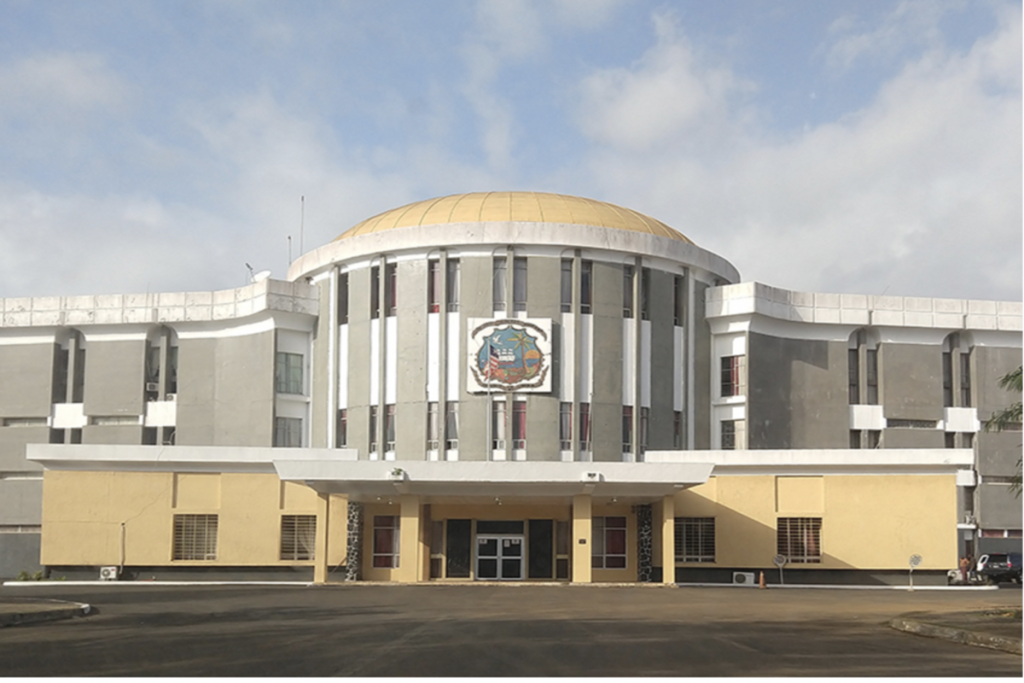Liberia House of Representatives led by the Majority Bloc, has passed the 2025 Draft National Budget, totaling 880 million Liberian dollar. The Senate swiftly concurred, granting the executive branch the authority to mobilise and allocate resources for the upcoming fiscal year.
The passage of Liberia’s national budget took place at the Monrovia City Hall, a temporary venue necessitated by last week’s suspected arson attack that severely damaged the Capitol Building. Despite this disruption, the Majority Bloc established quorum and proceeded with the legislative duty on Friday, December 20, amid fierce disputes over the legitimacy of their actions.
Richard N. Koon, who has assumed the position of House Speaker under contentious circumstances, chaired the session. However, embattled Speaker J. Fonati Koffa vehemently opposed the process, labeling the budget’s approval as “ultra vires”—a term meaning beyond constitutional authority. Koffa’s critique, shared on Facebook, has deepened divisions within the House of Representatives, causing debates over his stance. While some applaud his dedication to the rule of law, others accuse him of obstructing legislative progress.

Initially proposed at $851.8 million by President Joseph Nyuma Boakai on November 18, 2024, the budget was revised upward after extensive legislative scrutiny. The adjustments align with the government’s ARREST Agenda for Inclusive Development (AAID), prioritising infrastructure improvements, debt servicing, and economic resilience.
The 2025 budget reflects a 15.3% increase from the $738.9 million 2024 Recast Budget, underscoring the administration’s determination to foster growth despite global economic challenges. It is composed of $833 million in Core Revenue and $18.8 million in Contingent Revenue, earmarked for operational and developmental initiatives tied to the AAID.
Tax revenue is anticipated to contribute $633.72 million, representing 80% of domestic income, while non-tax revenue is projected at $138.5 million, or 17.4%. Additionally, external funding is expected to total $60 million—7% of the overall budget—with $40 million from the World Bank and $20 million from the European Union. This marks a 50% increase in international support compared to 2024, signaling growing confidence in Liberia’s economic direction.
In a related development, the Supreme Court directed the House to resolve its internal disputes. In response, the Majority Bloc has intensified its efforts to consolidate power by suspending four additional lawmakers for alleged rule violations, bringing the total number of suspended members to seven.
The ongoing discord within the House continues to cast uncertainty over Liberia’s governance, even as the 2025 budget aims to address critical national priorities and bolster economic stability.


